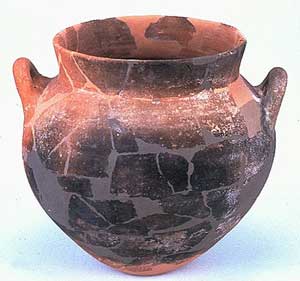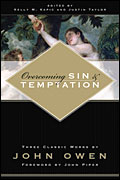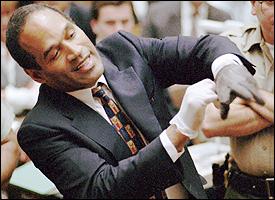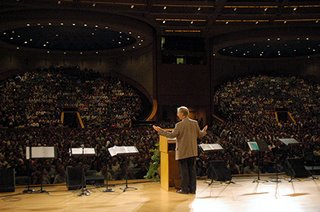Fashion - the window to the heart? [2]
 Yesterday, I started to post some thoughts on the issues of 'proper church dress'. The post was motivated by some thoughts Mark Driscoll posted on his blog.
Yesterday, I started to post some thoughts on the issues of 'proper church dress'. The post was motivated by some thoughts Mark Driscoll posted on his blog.Mark was also nice enough to post some questions which were really thought provoking. I prattled on in response to a couple of these brain-ticklers (not that Mark was really asking me what I thought) last time and thought I'd wrap it up today.
Why should we press for formal dress in church when one of the only passages in the New Testament that speaks about what to wear to church rebukes women for dressing up to the degree that they turned church into a fashion show (1 Timothy 2:9–10)?
This is the first question with which I've really taken issue... Before posting any thoughts, it's worth noting that I can't help but read these questions with a bit of Driscoll's snarky edge on them. Perhaps he's asking these things honestly, but his modus operandi is usually to make a stabbing, sarcastic point in such questions.
 If I'm reading that into these questions and it isn't really there, I'm sorry!
If I'm reading that into these questions and it isn't really there, I'm sorry!- There is a difference between 'formal' and 'fancy'. As Mark notes, Paul is driving at the dividing line between 'gaudy' and 'modest/respectable', not 'formal' versus 'informal'. A woman can wear a nice dress without having to look like something off of a New York runway. As such, I think it's unfair to stretch this to be a blanket indictment formal attire by the Apostle Paul.
- Also note that Paul is pointing out that the clothing we wear says or reflects (to outsiders if to no one else) something about what we treasure. In this case, the women are displaying a desire to be exalted for their beauty/wealth/style, rather than honoring God in humility with good works.
- It's at least possible that these were Godly women who, if asked, would've told you they valued all the right things (and meant it)! Nonetheless, their clothing is out of step with that reality and Paul challenges them to make the exterior match the interior. So, while the heart is the main thing, it isn't the only thing.
Since we are supposed to be hospitable and welcome people to church as missionaries, does it not make sense to dress like "normal" people rather than make normal people dress up like "church" people?
To answer an unqualified 'yes' to this question, you must make three assumptions that I think are dangerous. First, you must assume that "normal" dress in a given cultural context is God-honoring. Second, the implication is that "church" people have just taken a good thing to an unnecessary extreme. And lastly, you're assuming that the clothes you wear have a primary impact on your ability to present the Gospel.
 Clearly assumption #1 - that "normal" dress is God-honoring - is probably not a safe one... Again, consider the 'Delicious' girl mentioned in the previous post. Or, better yet, don't.
Clearly assumption #1 - that "normal" dress is God-honoring - is probably not a safe one... Again, consider the 'Delicious' girl mentioned in the previous post. Or, better yet, don't.If we hold out a three-piece suit and denim jumpers with head coverings as the only allowable clothes within a church, I agree we are going to have huge missiological problems. Then again, it should be clear that such a view also has huge Biblical problems to deal with. Outside of such unbelievable extremism, I think that clothing differences are not going to impact your ability to preach the Gospel in the United States.
Why? We live in a culture that, by and large, holds to fairly homogenous ideas of dress across most cultural groups. A suit that a Wall Street banker would wear doesn't look completely foreign to a youth in South Philly. If you go to a mall, there's probably less than 5% of people who will be wearing something that completely 'surprises' you... Everyone else will look fairly normal to you.
I think the bigger challenge is getting past the prejudices that certain looks create... If someone walks into my church dressed differentl
 y from the rest of us, will we reach out to that person? Will we go up to them and strike up a friendly conversation? Would we sit next to them in the pew if we arrived after they did?
y from the rest of us, will we reach out to that person? Will we go up to them and strike up a friendly conversation? Would we sit next to them in the pew if we arrived after they did?Our ability to look past the clothing that someone wears is the critical thing. When people walk into our churches, we must be welcoming and Christlike... It strikes me that our dress isn't an issue in prolly 99% of missional contexts. Our poor attitudes, however, pose a problem 100% of the time.
So... What do I think is the right 'dress code' for church? So glad you asked. [Yes, I hear the sounds of mouse buttons clicking off to another link]
- Clothes are good. We should wear them.
- Our clothing should be modest and respectable. While both of those terms are very subjective, I think we grown-ups should be able to work out agreeable definitions within any given context (Speedos for guys or bikinis for girls would be overtly immodest, dressing up as Spock in full Federation regalia would be overtly disrespectful*).
- Within those subjective bounds, allow your prayerful conscience to inform your choices. And then just have at it.
- The spiritual shepherds of a church (whether you call 'em Pastors or Elders) must work to know the people who are in their care. They are tasked with probing the hearts of their sheep and assessing whether clothes are 'just clothes', break some reasonable expectation of decency or respect, and/or are indicative of an underlying heart issue that needs to be addressed.
No matter what clothes you have on, the key question is whether or not your heart is ruled by Christ as Lord. Let's make sure we keep that as they key concern rather than "skirts versus slacks versus jeans".
Anyway, what do you think?
*Considered 'normal' if you worship here or here.
Labels: Rant







































